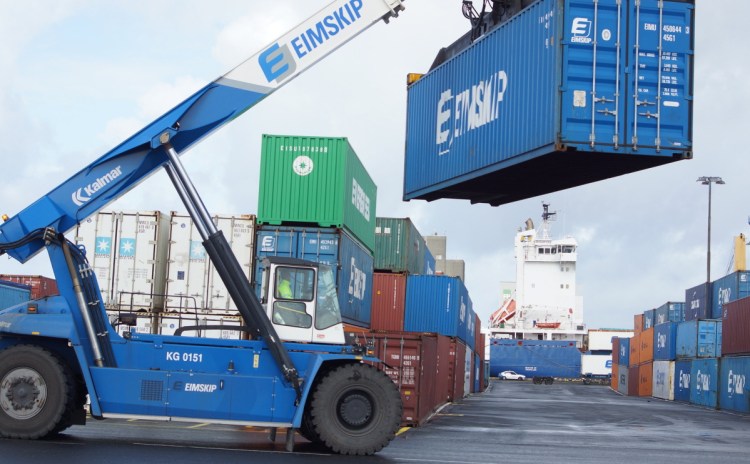A year ago, state officials made a strong case about the importance of Americold’s proposed $30 million cold-storage facility on the Portland waterfront to Maine’s future as a transportation hub.
Now, with Americold’s announcement that it is no longer interested in investing in Maine, those same officials will have to come up with an alternative plan that is at least as compelling.
We think that they can. The public-private partnership that revived Portland as a cargo port and logistics hub is one of the state’s best economic success stories of the last decade. The state invested millions extending a rail line and expanding the marine terminal, creating an opportunity to bring cargo in and out of Maine through the Port of Portland.
That investment has paid off. The Icelandic steamship company Eimskip made its North American headquarters here, not only bringing Icelandic products to new markets, but also creating opportunities for other businesses. Eimskip not only delivers fish from the North Atlantic to local processors, it opens new markets for Maine lobster, blueberries and beer in Scandinavia.
A cold-storage warehouse on state-owned land was billed as the final piece of the puzzle, lowering costs for buyers and sellers expanding commerce. Such a facility would create hundreds of jobs and millions of dollars in economic activity that would benefit the entire state. Portland city planners were warned that failure to approve a zoning change could jeopardize that future, possibly forcing Eimskip to move its operation elsewhere.
Now Americold, which has gone through a corporate restructuring and an initial public stock offering since it was awarded the contract, says it is no longer convinced that the amount of activity in the port would generate sufficient profit to justify an investment of this size.
But that doesn’t mean that a facility to store food during transit doesn’t make sense for Maine.
There are enough companies that would benefit from having such a facility here that they could invest, even if the warehouse itself did not make huge profits as a stand-alone business. And the state, which has already proven that publicly funded port infrastructure is good for the economy, could play a bigger role than just serving as the landlord for the warehouse, as was the plan with Americold.
Losing Americold should not mean that Portland will lose out on cold storage, and John Nass, deputy commissioner for the Maine Department of Transportation, said he was confident another proposal would soon materialize. We hope he’s right.
Having a multimodal cargo hub that links markets in North America and northern Europe is an asset for Maine. It’s much too soon to give up on it.
Send questions/comments to the editors.



Success. Please wait for the page to reload. If the page does not reload within 5 seconds, please refresh the page.
Enter your email and password to access comments.
Hi, to comment on stories you must . This profile is in addition to your subscription and website login.
Already have a commenting profile? .
Invalid username/password.
Please check your email to confirm and complete your registration.
Only subscribers are eligible to post comments. Please subscribe or login first for digital access. Here’s why.
Use the form below to reset your password. When you've submitted your account email, we will send an email with a reset code.